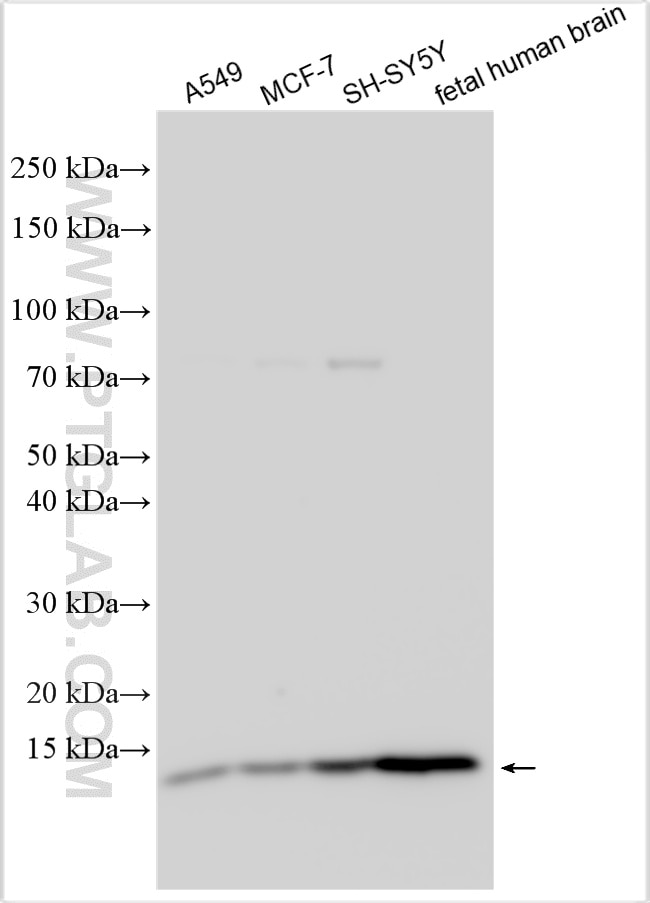Validation Data Gallery
Tested Applications
| Positive WB detected in | A549 cells, MCF-7 cells, SH-SY5Y cells, fetal human brain tissue |
Recommended dilution
| Application | Dilution |
|---|---|
| Western Blot (WB) | WB : 1:1000-1:4000 |
| It is recommended that this reagent should be titrated in each testing system to obtain optimal results. | |
| Sample-dependent, Check data in validation data gallery. | |
Published Applications
| WB | See 1 publications below |
Product Information
13783-1-AP targets PFN2 in WB, ELISA applications and shows reactivity with human samples.
| Tested Reactivity | human |
| Cited Reactivity | rat |
| Host / Isotype | Rabbit / IgG |
| Class | Polyclonal |
| Type | Antibody |
| Immunogen |
CatNo: Ag4792 Product name: Recombinant human PFN2 protein Source: e coli.-derived, PGEX-4T Tag: GST Domain: 1-140 aa of BC018049 Sequence: MAGWQSYVDNLMCDGCCQEAAIVGYCDAKYVWAATAGGVFQSITPIEIDMIVGKDREGFFTNGLALGAKKCSVIRDSLYVDGDCTMDIRTKSQGGEPTYNVAVGRAGRVLVFVMGKEGVHGGGLNKKAYSMAKYLRDSGF 相同性解析による交差性が予測される生物種 |
| Full Name | profilin 2 |
| Calculated molecular weight | 140 aa, 15 kDa |
| Observed molecular weight | 14-15 kDa |
| GenBank accession number | BC018049 |
| Gene Symbol | PFN2 |
| Gene ID (NCBI) | 5217 |
| Conjugate | Unconjugated |
| Form | |
| Form | Liquid |
| Purification Method | Antigen affinity purification |
| UNIPROT ID | P35080 |
| Storage Buffer | PBS with 0.02% sodium azide and 50% glycerol{{ptg:BufferTemp}}7.3 |
| Storage Conditions | Store at -20°C. Stable for one year after shipment. Aliquoting is unnecessary for -20oC storage. |
Background Information
PFN2 (profilin 2) is a ubiquitous actin monomer-binding protein belonging to the profilin family. It is thought to regulate actin polymerization in response to extracellular signals. The MW of this protein is 15 kDa.
Protocols
| Product Specific Protocols | |
|---|---|
| WB protocol for PFN2 antibody 13783-1-AP | Download protocol |
| Standard Protocols | |
|---|---|
| Click here to view our Standard Protocols |

